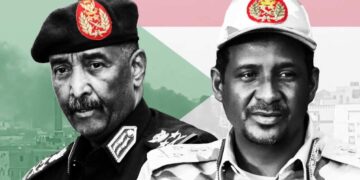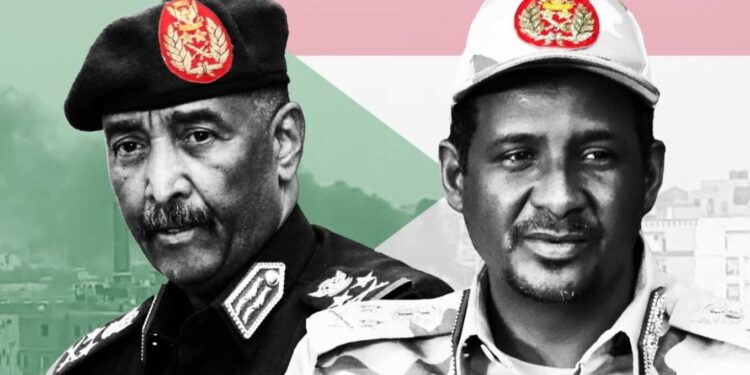By John Ikani
Months of mediation efforts by the East African bloc IGAD have culminated in a crucial commitment from the warring parties in Sudan. The agreement involves implementing a ceasefire and initiating a political dialogue to address the ongoing conflict.
On the ground, the UN faces a funding crisis, risking a catastrophic situation for the war victims.
During talks in Djibouti on Saturday, Sudan’s army chief, Abdel Fattah al-Burhan, and RSF commander Mohamed Hamdan Dagalo, commonly known as Hemedti, agreed to a one-on-one meeting, endorsing the ceasefire proposal.
Both leaders accepted the idea of meeting within 15 days to establish confidence-building measures and kickstart a political process, according to Alexis Mohammed, adviser to Djibouti’s president.
The conflict, ongoing since mid-April, has inflicted severe damage on Khartoum and led to ethnic killings in Darfur.
The power struggle between Sudan’s army and the paramilitary Rapid Support Forces (RSF) has resulted in over 12,190 casualties, as reported by the Armed Conflict Location & Event Data Project (ACLED).
Last week, the United States accused both sides of committing war crimes, with the RSF facing allegations of ethnic cleansing and crimes against humanity.
Simultaneously, eyewitnesses reported blasts at the major Al-Jaili oil refinery near Khartoum, and a Red Cross convoy came under fire in the capital, causing casualties on both sides.
Amidst the turmoil, the United Nations warned of an impending catastrophe due to insufficient funds. The humanitarian response in Sudan remains severely underfunded, with only 38.6 percent of the required $2.6 billion for 2023 received.
The UN’s humanitarian coordinator for Sudan, Clementine Nkweta-Salami, described the situation as ‘catastrophic,’ emphasizing the urgent need for resources to aid the nearly 25 million people in need.
Despite being the highest displacement situation globally, the crisis in Sudan has received minimal attention.
The Norwegian Refugee Council (NRC) continues to provide vital aid, but its secretary general, Jan Egeland, expressed frustration at the lack of resources.
Only 38.6 percent of the required funding has been received, leaving millions in dire need without adequate assistance.
Sudan’s tragedy, often overshadowed by other conflicts, has seen a decline in aid groups, further exacerbating the crisis.
Protests and accusations against the United Arab Emirates (UAE) for supporting the RSF have strained diplomatic relations, leading Sudan to declare 15 UAE diplomats persona non grata.
Amid these challenges, the call for a ceasefire and lasting peace in Sudan remains paramount.



































